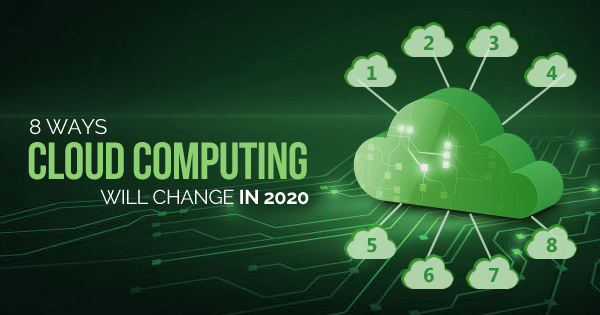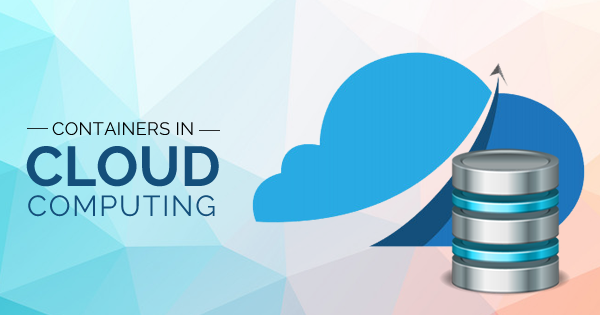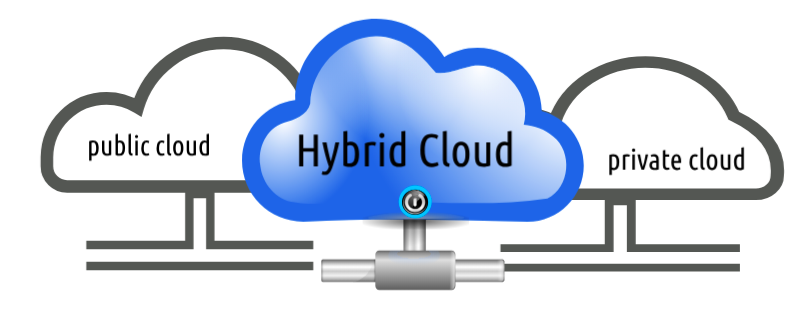The world runs on data in the present times. A decade ago, Twitter would have been just on paper. Cloud computing has been responsible for simplifying many processes and operations in the IT world. Therefore, the importance of cloud computing trends 2020 in circles of IT leaders all over the globe is evident. The emerging developments in cloud computing change the way business is done! So, all enterprises need to keep track of the upcoming trends in the field of cloud computing.
Over the years, the demand for cloud computing has increased substantially. Many start-ups opt for a cloud-first approach with access to multiple tools, data, and scalable computing resources. Most important of all, cloud architecture can help in achieving cost-effective and efficient scaling of existing or new infrastructures.
Demystifying Cloud Computing Trends 2020
Almost 50% of the organizations in the world adhere to a cloud-first philosophy or use the cloud exclusively for marketing purposes. Therefore, awareness of cloud computing trends for 2020 can help in making the most of cloud computing for your business. The following discussion would take a look at the eight latest cloud computing trends that you can expect in 2020.
1. Importance of Containers
Containers will be one of the foremost highlights among cloud computing trends 2020. They help in breaking down apps into smaller and easily manageable packages of code. In addition, the bundling of the code with software apps helps in the effective functioning of the code without depending on the host server.
Containers help in the standardized inclusion of the code, dependencies, and configurations of an application in a single package. Furthermore, they can also help in seamless transfer of work and apps from a private cloud to a public cloud and vice-versa.
According to ESG research, containers will play a large part in how cloud computing will change by 2020.
As of 2018, almost 19% of the hybrid cloud workloads included containers. Predictions for 2020 indicate that containers will form a part of almost 33% of the hybrid cloud workloads. The popularity of Docker and Kubernetes speaks a lot about the dominance of containers as a popular cloud computing trend in 2020.
2. The Popularity of Hybrid Cloud
The rise of the hybrid cloud also shows how cloud computing will change by 2020. The hybrid cloud offers the opportunity to use the functionalities of public and private clouds alongside some third-party tools. As a result, enterprises could make the most of on-demand, pay-per-use, and Software as a Service (SaaS) functionalities with one solution.
The outcome of rising hybrid cloud implementation will be evident in the effective machine and resource management with higher dynamism, scalability, and flexibility. Furthermore, the hybrid cloud would bring better opportunities for personalization. Every program could have a unique combination with personalization to ensure the measurement of specific characteristics and needs.
Therefore, this entry among cloud computing trends 2020 could impose a highly positive influence on the performance of cloud systems. Do you think that this can be a false assumption? From 2018 to 2019, the hybrid cloud solutions gained a raise in adoption rate by 7%. Moreover, around 58% of enterprises have a hybrid cloud computing strategy. So, it would be appropriate to say that hybrid cloud is the next big thing in the cloud computing landscape.
Must Read: Top Benefits of the Hybrid Cloud Adoption
3. Improvement of Backup and Disaster Recovery Systems
Backup and disaster recovery have been prominent concerns since the emergence of cloud computing. In the year 2020, new systems for backup and disaster recovery would take the centerstage. Why?
According to a recent report, almost 15% of the cloud budget of enterprises is ideal for backup and disaster recovery.
Therefore, all major cloud service providers with public, private, and hybrid cloud solutions are striving hard for promising outcomes in this field. The primary focus would be on the improvement of resilience and functionality of backup and disaster recovery mechanisms.
Many events in recent times have indicated that recovery of data from the cloud may seem easy on paper. However, the lack of efficient disaster recovery mechanisms can put sensitive data at risk of a complete loss.
4. Serverless Computing
The origins of the serverless computing paradigm are also one of the notable IT trends since the emergence of cloud computing. Serverless computing helps in the execution of code snippets on the cloud without interfering in the work of developers. As one of the emerging cloud computing trends 2020, a serverless paradigm helps in breaking down Software or application into pieces of code.
The updates in the code can be possible according to the customer’s aspiration for delivering a faster release cycle without compromising on experience. According to the CTO of Amazon, serverless computing will be the foundation of developing next-generation systems. The serverless paradigm is aptly evident in Amazon AWS, which uses serverless computing for managing the allocation of different resources.
Preparing to become a certified cloud professional? Check our Cloud Certifications Training Courses now!
5. Quantum Computing
Quantum computing also comes in the list of latest cloud computing trends for the upcoming year. Quantum computing leverages quantum physics for improving the processing power of computers. Users can access quantum computers through the internet, just like they use cloud computing for accessing computing resources.
Many popular companies such as AWS, Microsoft Azure, IBM, and Google Cloud are presently working on quantum computing. The primary objective of these companies for working with quantum computing is evident for leveraging the best cloud-based tools. Quantum computing helps in faster processing of complex computations for processing large and complex datasets.
Furthermore, quantum computing will be a notable mention among cloud computing trends 2020 because of its functionality in the encryption of electronic communications. The faster processing of data with the help of quantum computing would be a helpful intervention in specific industries. For example, financial companies which use various algorithms for running and verifying a transaction.
The storage in the case of quantum computing is also a promising highlight for considering its inclusion among cloud computing trends 2020. Quantum computing provides storage in qubits that offer faster and simpler data storage. Therefore, quantum computing can be an optimal alternative for the improvement of overall process workflow. In addition, quantum computing also takes away the cost of hiring an additional IT resource.
6. Automation and Cloud Computing
The reduction of human effort will continue to be one of the prominent trends in cloud computing predictions for 2020. What are we talking about exactly? Automation! Companies choose the cloud to improve their productivity. So, automation takes the benefits of cloud computing to a level up with the use of the same resources and with a reduction in errors.
The streaming service giant, Netflix, uses automation in cloud computing for the delivery of its services. The advantage of automation in cloud computing trends 2020 is the facility for developers to save changes easily without glitches. In case of any issues with the website or application, users are taken to the earlier version of the website.
Therefore, enterprises don’t have to compromise with user experience or sales anymore, with automation at their disposal. Developers could also use automation for simplifying tedious tasks during cloud migration, such as management of applications, data, and tasks.
The combination of AI and cloud computing brings favourable outcomes for the business growth. Here we bring the top benefits of using AI in cloud computing!
7. Open-source Projects and Cloud-native Development Platforms
Open-source projects and vendors striving for attention in the cloud-native development ecosystem would be at loggerheads in 2020. Cloud computing predictions for 2020 further indicate that this competition would influence service meshes and serverless paradigm. Kubernetes became the top container orchestration platform in 2019 and brought an assortment of new commercial offerings. However, infrastructure and operations professionals realize the value of the commercial offerings now.
On the other hand, service meshes can provide better networking, visibility, and security between services on the cloud. Presently, Istio is the leader in the service mesh landscape, while Knative is the preferred choice for serverless. The interesting aspect here is that both service meshes and serverless would avail adoption as part of the cloud-native development platform. The cloud-native development platform can come from AWS, Google Cloud, Microsoft Azure, IBM/Red Hat, or VMware/Pivotal.
8. Blockchain Technology
Blockchain is another emerging entry among cloud computing trends 2020. Cloud computing is decentralized and offers scalability, and so does blockchain technology! Therefore, cloud computing and blockchain technology are a perfect fit for each other. Cloud computing can be the first choice for hosting solution for initial coin offerings (ICOs) and other applications utilizing blockchain. The applications using blockchain could be evident primarily in the functions of data security and cryptographical analysis.
Most important of all, the applications of blockchain technology would expand slowly to other sectors. The use of blockchain technology in cloud computing can render diverse and improved functionalities. The functionalities include migration of servers to the cloud, development of custom applications, producing outcome-specific tangible results, and large-scale data analysis.
Preparing to become a certified blockchain expert? Follow this Certified Blockchain Expert preparation guide and get ready to pass the exam.
Final Words
In addition to the above-mentioned cloud computing trends 2020, enterprises can expect many other advancements. For example, the focus on integrating the cloud and IoT for creating the Internet of Everything (IOE) presents vital opportunities. The importance of artificial intelligence and machine learning for improving the functionality of the cloud will also be a central theme for cloud computing in 2020.
Presently, organizations shift their attention and investments on AI and ML for driving the best outcomes from cloud infrastructures. However, the focus of enterprises on ML and AI in 2020 will primarily target the centralization of AI and ML on the cloud. Deep learning and big data analytics could also grow exponentially in terms of power in 2020. Based on these trends, enterprises could tailor an effective cloud strategy for the maximum benefits in 2020.
No doubt, the year 2020 will bring a number of opportunities for cloud professionals with the new cloud computing trends. If you are a cloud enthusiast, determine to validate your skills with a cloud computing certification this year. If you want to pass the certification exam in your first attempt, don’t forget to make our Cloud Certification Training Courses your companion in your certification preparation journey.
- Top 20 Questions To Prepare For Certified Kubernetes Administrator Exam - August 16, 2024
- 10 AWS Services to Master for the AWS Developer Associate Exam - August 14, 2024
- Exam Tips for AWS Machine Learning Specialty Certification - August 7, 2024
- Best 15+ AWS Developer Associate hands-on labs in 2024 - July 24, 2024
- Containers vs Virtual Machines: Differences You Should Know - June 24, 2024
- Databricks Launched World’s Most Capable Large Language Model (LLM) - April 26, 2024
- What are the storage options available in Microsoft Azure? - March 14, 2024
- User’s Guide to Getting Started with Google Kubernetes Engine - March 1, 2024



You Explained 2020 Cloud Computing Changes very nicely. I have learned a lot from your article about the latest cloud trends. Thank you so much for sharing this article, I hope you will share this type of informative articles in future with us. I want to know more about which cloud computing Certification is best ….. Please post an Article on This topic.